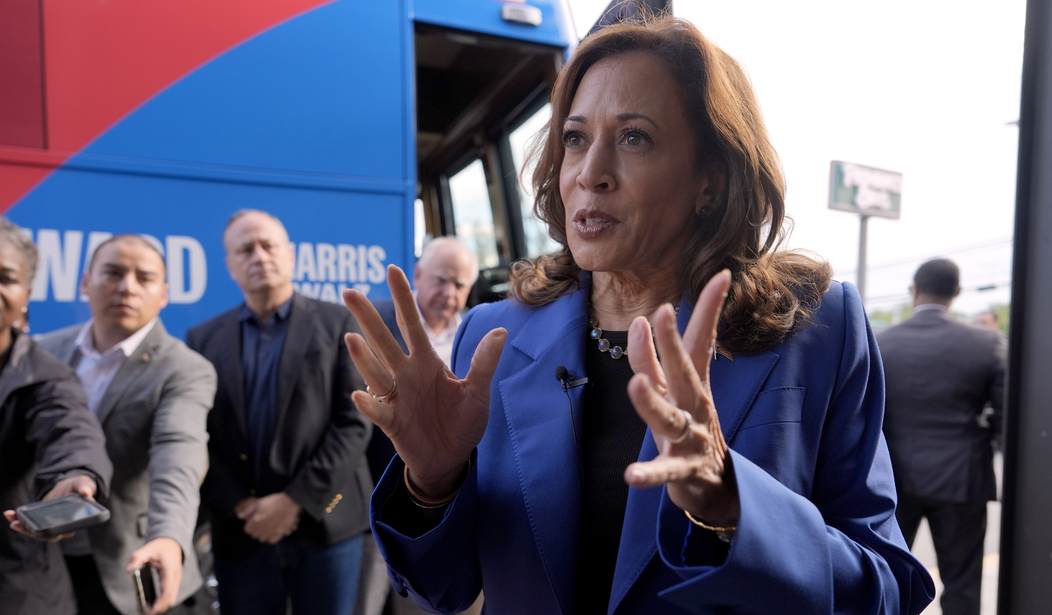When Cheree Peoples’ daughter fell ill, she expected compassion and support from her community, but instead, she was arrested and criminally charged thanks to California’s truancy laws, which Vice President Kamala Harris championed while serving as the state’s attorney general.
Harris once again faces criticism for her actions when she served as California’s AG. Some who suffered from her approach to criminal justice have been speaking out. Peoples is one of them.
California’s truancy laws have been debated for years, especially when Harris became a presidential contender in the 2020 election. During her stint as California’s top cop, she introduced stricter measures ostensibly to reduce absenteeism in schools. These measures included criminal penalties for the parents of chronically absent children. However, her approach to this issue victimized undeserving parents.
“I believe a child going without an education is tantamount to a crime,” Harris said during a speech discussing the truancy law. “So, I decided I was going to start prosecuting parents for truancy.”
Kamala Harris discussing efforts to prosecute parents for violations of truancy laws.
— Jeff Charles, Doni's St. Bernard🏴 (@jeffcharlesjr) August 19, 2024
"I believe a child going without an education is tantamount to a crime. So I decided I was going to start prosecuting parents for truancy." pic.twitter.com/WhrLrUI0Ix
Harris, who served as attorney general from 2011 to 2017, made truancy a central focus of her office. Under her leadership, the state imposed stricter penalties, including fines and possible jail time for parents whose children repeatedly missed school without a valid excuse.
Unfortunately, Peoples became one of many victims of Harris’s approach to law enforcement. Her ordeal began when her daughter, Shayla, who suffers from sickle cell anemia, missed multiple days of school because of her condition. Peoples found herself on the school’s radar as a result. She was later arrested, booked, and faced criminal charges under the state’s truancy laws.
During an interview on the “Be The Power” YouTube channel, she explained that despite having a 504 plan in place, the state sought to prosecute her. (A 504 plan is "a blueprint for how the school will support a student with a disability and remove barriers to learning.") “I had to go to criminal courts for that, not any truancy court. It was actually criminal court,” Peoples recounted.
School administrators failed to inform the District Attorney’s office about Shayla’s medical condition on her 504 plan, which led to the mother’s arrest and subsequent legal battle, which lasted two and a half years.
Further compounding the matter, Peoples was homeless at the time, struggling to provide for her family while navigating the legal system. The authorities sought to paint her as a neglectful parent despite her efforts to care for her daughter. “They wanted her to see probation officers. They wanted her to have and literally take her to the police station,” she explained.
Going through this process took a significant emotional and physical toll on Peoples and her daughter. “[Shayla] suffers a massive stroke during my truancy trial because I was in trial for two and a half years,” she told the host.
She added: “Can you imagine, as a mom, your child constantly in pain but have to smile through it?”
The authorities began pursuing the mother after requesting information about absenteeism from the school district. “The administrators, the principal of the school, and the DA came to the district saying, ‘Hey, give me all your people that are missing X, Y, and Z days.’ And they still submitted my name,” Peoples recalled.
Peoples tried on numerous occasions to discuss the matter with the school and explain her daughter’s condition. Unfortunately, she was met with indifference.
“I was approaching the principal. I was going to him. What’s going on with these letters? Why am I getting this?” she said. The school did not take her concerns seriously, nor did they communicate the issue to the District Attorney’s office.
The ongoing fear and uncertainty weighed on the family and exacerbated Shayla’s condition. Peoples described how her daughter would say, “Mom, I don’t know what it’s like to not be in pain. Pain is all I know.”
Truancy laws have been controversial in multiple states, with critics pointing out how they unfairly criminalize parents who are struggling to make ends meet. Harris, in a 2019 interview, indicated that she now regrets her approach to truancy. “My regret is that I have now heard stories where, in some jurisdictions, DAs have now criminalized the parents,” the vice president said.
She added: “And I regret that that has happened and the thought that anything that I did could have led to that.”
Sen. @KamalaHarris on the truancy law she championed as Attorney General that punishes parents if their kids miss too much school.
— Pod Save America (@PodSaveAmerica) April 17, 2019
Full interview airs tonight: https://t.co/UJ9G9AzXdD pic.twitter.com/EOtCiKHXm7
Nevertheless, Harris’ legacy as California’s attorney general will still be the subject of scrutiny as she seeks to become the next president.
You can watch the full interview below:














Join the conversation as a VIP Member